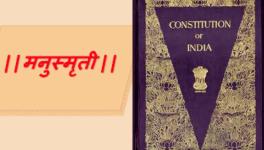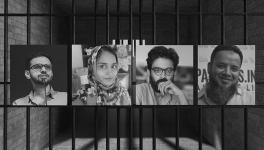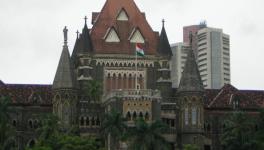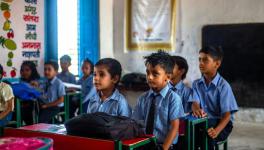Surest Way to Destroy a Country is to Divide it Internally
The surest way to destroy a country is to divide it internally. And, the most effective way to do this is to set the touchy, sensitive, identities of its people into conflict-ridden narratives. Further, the most crafty way to design such narratives is to invent a cocktail comprising historical distortions, plain lies, and fake generalizations about communities. Add to this cocktail dead contexts and heartaches dragged into the present, and you have the recipe to spread pain and suffering.
Today, unfortunately, this conflict-creation is not a merely theoretical thesis. Nor is it a mere academic truth. In fact, it is something vital to understanding why our present reality is marked by highly volatile and deeply conflict-ridden discourses. The reasons why the manufacturing of such narratives should be noted with extraordinary alarm are two. One, amidst cross-border challenges, internal fault lines are often ignored, especially by the most vocal “patriots”. When the fact is, internal conflicts may have a much greater potential to ruin the country, for they can eat it up from the very roots.
Second, today, we are witness to a frightening scenario wherein constitutional powers are mostly in the hands of those who have always resented the Constitution of India. This has the effect of willy-nilly weakening institutions that are otherwise duty-bound to protect the constitutional rights of all individuals and collectivities in society. These institutions are duty-bound to save citizens’ rights without succumbing to the pressures of the State or the temptation to connive with those who are eroding democracy. If institutions succumb to such pressures, they would consequently behave like associates of those who play conflict games. Today, all these institutions are under severe stress, and in some, cracks are visible already.
The cracks we see are not only the symptoms of a profound malaise but also a danger signal marking a pervasive sickness. The most crucial condition for a country’s well-being is that each of its citizens, even during its worst conflicts, can trust its institutional structures and reasonably retain the hope to get justice and redemption. The weakening of our constitutional institutions erodes this faith and hope. This in turn creates a deep sense of hopelessness, alienation and discrimination. And, this is the worst that can happen to a country.
Stray cases of discrimination in homes, businesses or elsewhere are not as damaging as structural discriminations. Nor are these as harmful as when discriminations are perpetrated by constitutional institutions. The distrust and hopelessness that such a situation—wherein institutional discrimination sets in—generates, have a great potential to tear the nation apart.
Sadly, this kind of moment seems already to be lurking at the nation’s threshold. There are many examples. But let us talk about just one.
It is a good idea that religion be confined to the personal space. But if this good idea is implemented in a discriminatory manner, it would lead to tragic consequences. For example, in several places, of which the latest is Gurugram in Haryana, members of the Muslim community were prevented from offering their namaz in public spaces. The official prevention of their worship toed the prevention enforced by certain groups of individuals who did not have the authority to do so.
In some of these places, Muslims had been offering namaz in specific spaces for quite some time without any objection or obstruction. Yet the charge that this was a misuse of public space was raised anew. Sure, one may argue that even something done over a long time can also be wrong. Even so, what one cannot agree with is the discriminatory use of objections to such practices. In other words, if using a public space for a religious ritual is wrong for one community, it must be wrong for the other communities too.
However, we find that in many of our cities, the construction of temples on footpaths, court premises, offices, state properties and other public spaces is a ubiquitous sight. These structures are built under the full and conscious gaze of the concerned authorities. No fingers are raised in objection to the usurpation of public properties in these cases. Even though it is clear such constructions are permanent occupations, pregnant with more significant consequences, they get ignored. For example, over time, buildings and stores such as sweet shops, flower shops, besides regular crowds, get attracted to these new constructions. It is our routine everyday experience that temples on public and State properties keep expanding and usurping more and more public space.
This is the principal reason why we must challenge discriminatory outrage and discriminative tolerance today. The question is: Does discrimination go well with the idea of ‘equal rights to each citizen’, which is one of the basic norms of our Constitution?
The author is a social activist and former Vice-Chancellor of Lucknow University. The views are personal.
Get the latest reports & analysis with people's perspective on Protests, movements & deep analytical videos, discussions of the current affairs in your Telegram app. Subscribe to NewsClick's Telegram channel & get Real-Time updates on stories, as they get published on our website.
























